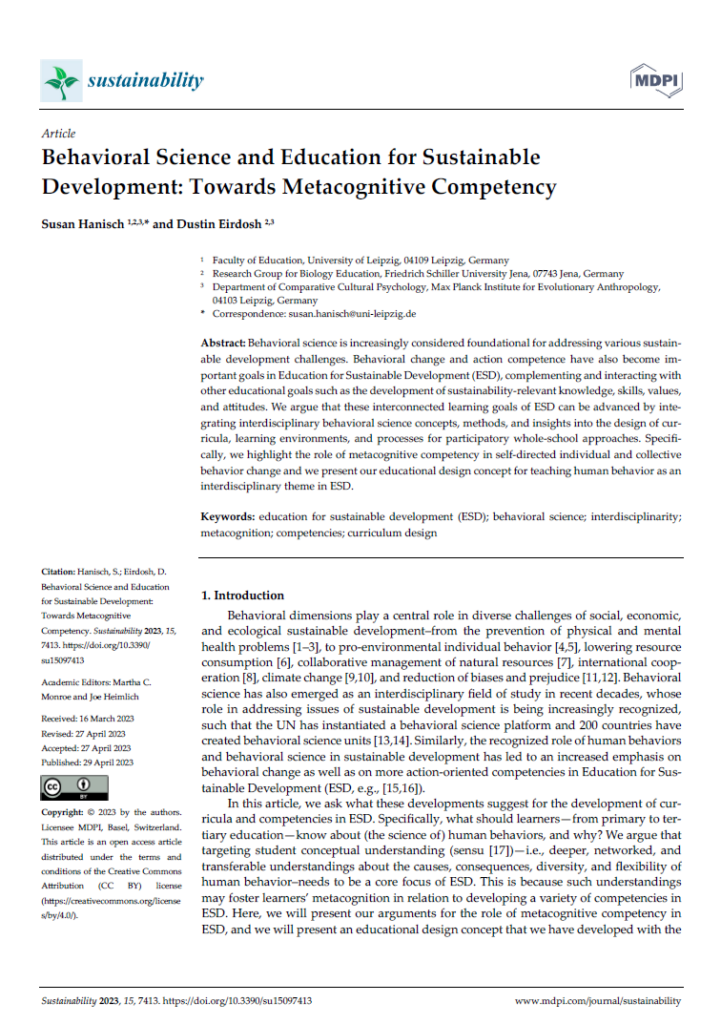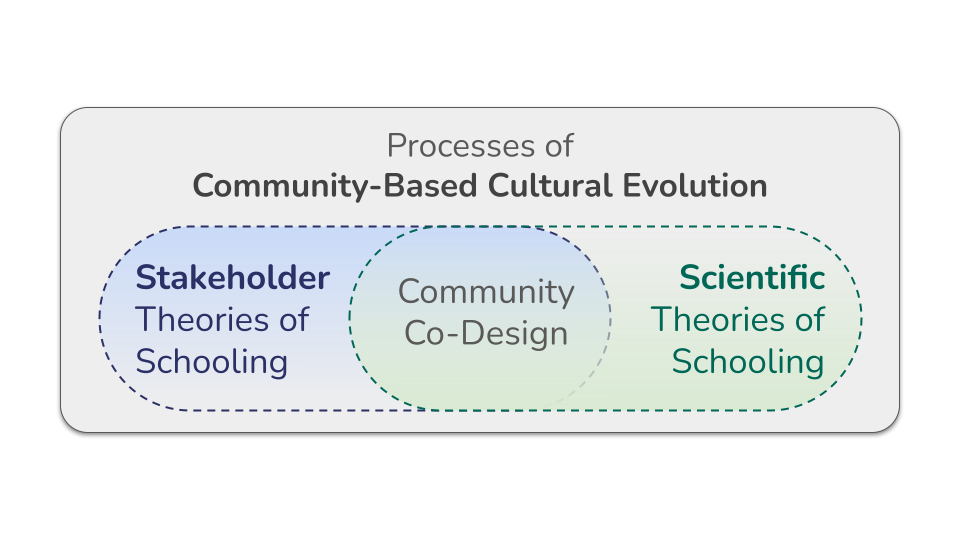Hanisch, S., & Eirdosh, D. (2023). Behavioral Science and Education for Sustainable Development: Towards Metacognitive Competency. Sustainability 15, no. 9: 7413. https://doi.org/10.3390/su15097413
Behavioral science is increasingly considered foundational for addressing various sustainable development challenges. Behavioral change and action competence have also become important goals in Education for Sustainable Development (ESD), complementing and interacting with other educational goals such as the development of sustainability-relevant knowledge, skills, values, and attitudes. We argue that these interconnected learning goals of ESD can be advanced by integrating interdisciplinary behavioral science concepts, methods, and insights into the design of curricula, learning environments, and processes for participatory whole-school approaches. Specifically, we highlight the role of metacognitive competency in self-directed individual and collective behavior change and we present our educational design concept for teaching human behavior as an interdisciplinary theme in ESD.




